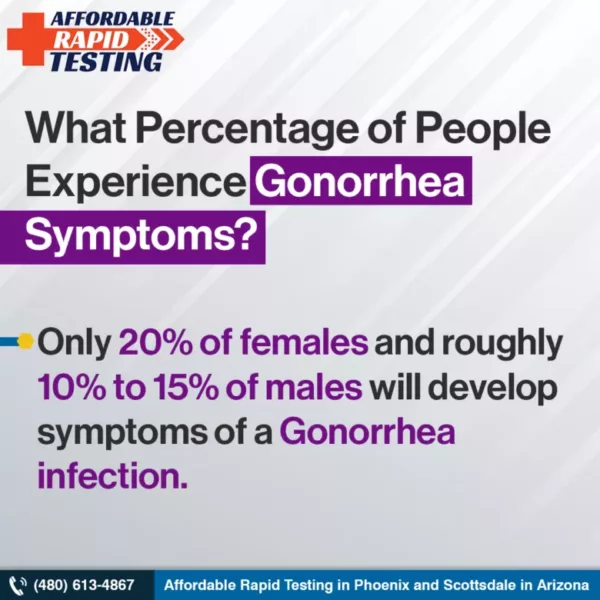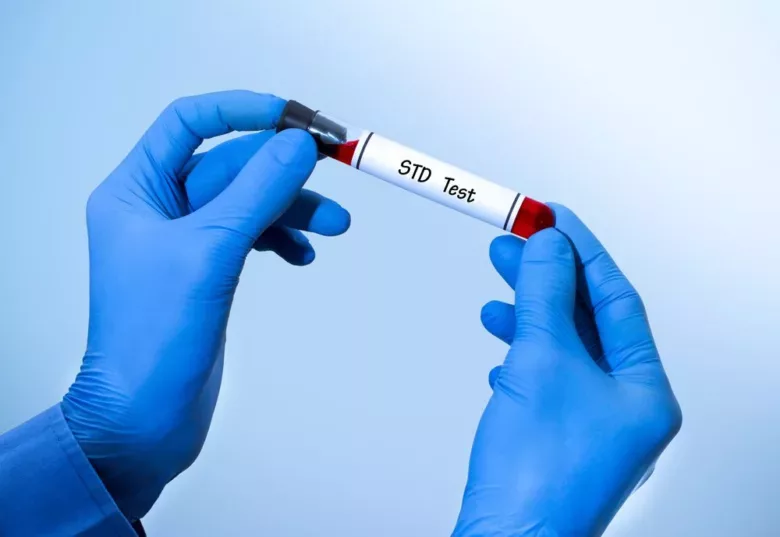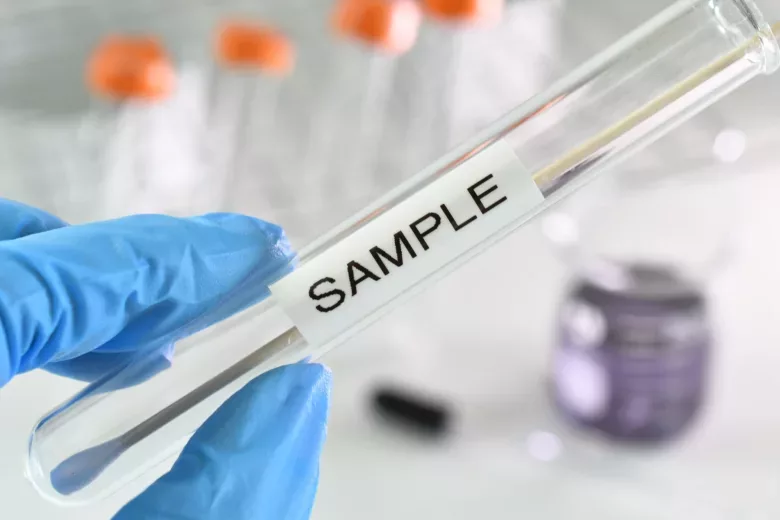A rising number of cases being reported and the emergence of drug-resistant strains are concerning developments in the global incidence of Gonorrhea in recent years. Knowing the transmission routes and implementing the proper preventative measures like undergoing routine STD tests, using protection and the like are essential in minimizing the spread of Gonorrhea.
Understanding Gonorrhea transmission
Gonorrhea is an STI resulting from the Neisseria gonorrhoeae bacterium. It has the ability to infect the mucous membranes of the reproductive system, including the cervix, uterus, and fallopian tubes in women, and the urethra in both men and women.
Gonorrhea can infect the mouth, throat, eyes, and rectum mucous membranes and is usually transferred via vaginal, oral, or anal intercourse. Gonorrhea can also be transferred perinatally from mother to infant during childbirth. Routine STD testing is highly advised to keep the transmission of this disease in check.
Risk factors for Gonorrhea
There are several risk factors that come into play when it comes to contracting an STD like Gonorrhea. Some of them include:-
- Having a new sexual partner: Risk of contracting Gonorrhea is higher especially if you are engaging in sexual activity with a new partner.
- Having a partner who has several partners: Having intercourse with someone who has multiple sexual partners increases your risk of getting Gonorrhea.
- Having had Gonorrhea or another STD: Having experienced Gonorrhea or another STD raises the chance of reinfection.
- Age under 25: People under 25 have a higher risk of contracting Gonorrhea.
Common Gonorrhea transmission routes
Gonorrhea is primarily transmitted via sexual contact with an infected partner. The specific routes of transmission include:-
- Vaginal, anal or oral sex with an infected partner.
- Although less common, Gonorrhea can be transmitted between female partners through sexual contact.
- Although rare, Gonorrhea can be transmitted via kissing as well.
- In men who have sex with men (MSM), the pharynx (throat) is a commonly infected site for Gonorrhea transmission. Gonorrhea can also be transmitted through receptive anal intercourse, particularly in MSM.
- The urethra is a common site of infection in both men and women.
Importance of safe sexual practices to prevent Gonorrhea
Gonorrhea can be prevented by practicing safe sex. Safe sex approaches can help minimize the likelihood of contracting Gonorrhea and other STIs. Here are some guidelines for safer sex.
- Limit your sexual activity to only one partner to avoid exposure to disease-causing germs.
- Ensure the consistent use of protective measures, such as condoms, internal condoms, dental dams, and latex or nitrile gloves, during all instances of oral, anal, or vaginal intercourse, as well as any activity that could potentially transmit sexual fluids.
- Sharing sex toys or genital contact can expose you directly to sexual fluids that have a high risk of carrying the Gonorrhea bacteria.
- Undergo periodic STD testing, especially if you have several sexual partners or participate in high-risk sexual practices.
- Practice abstinence, which is the surest way to avoid STDs.
Regular testing and early detection
The following are some recommendations for Gonorrhea screening and early detection:
- As per the CDC guidelines, annual Gonorrhea testing is recommended for all sexually active women below 25 years of age. Additionally, women aged 25 years and older, who have risk factors such as engaging in sexual activity with new or multiple partners, having a partner with a Gonorrhea infection, or a history of previous Gonorrhea infection, should also undergo yearly testing.
- Men who have sex with men should be evaluated yearly for Gonorrhea or every three to six months if they are at a larger risk of getting Gonorrhea.
- Pregnant women should be checked for Gonorrhea as it can be spread from mother to child. All pregnant women under 25 should be tested, and those 25 and older should be screened if they are at a greater risk of Gonorrhea infection.
Things to know before undergoing STD testing for Gonorrhea

Here are some things you should keep in mind before going for an STD testing procedure for detecting Gonorrhea:-
- Gonorrhea testing can be undertaken at a doctor’s office using a swab or brush to capture a sample from the location of likely infection, such as the cervix, urethra, mouth, or rectum
- Gonorrhea can be diagnosed by conducting a nucleic acid amplification testing (NAAT) or Gonorrhea culture.
- If test results are positive for Gonorrhea, treatment should begin as early as feasible to reduce difficulties.
- If symptoms don’t improve following medication, a susceptibility test may be undertaken to identify which antibiotic will most benefit the infection.
Regardless of treatment, it is vital to warn sexual partners if you have tested positive for Gonorrhea so they may be evaluated and treated soon.
Public health initiatives and awareness campaigns
There are several public health initiatives and awareness campaigns to help prevent contracting Gonorrhea. Some of them are:
- STI Awareness Week: This is an annual program by the CDC to promote awareness about sexually transmitted illnesses, including Gonorrhea. The campaign urges citizens and healthcare practitioners to take three easy actions: discuss, test, and treat.
- IKnowUShould2 Campaign: This campaign attempts to enhance teenage education and testing practices for sexually transmitted illnesses, including Gonorrhea. It focuses on creating awareness about the necessity of testing and treatment.
- Healthysexual Campaign: This is an overall sexual health campaign to increase awareness about sexual health and what individuals can do to avoid, test, treat, and speak to reduce the personal and societal effects of STIs, including Gonorrhea. The campaign emphasizes essential sexual health information and employs a straightforward call to action – discuss, test, protect – to cut across all demographics.
Choose an Affordable Rapid Testing center in Arizona for Gonorrhea testing.
Preventing Gonorrhea requires understanding its transmission and implementing effective protection strategies. Affordable Rapid Testing provides same-day walk-in STD testing for all prevalent STDs, including Gonorrhea, and can identify the condition through a urine sample or a swab of vaginal fluid. They are a reputable clinic devoted to offering exceptional STD testing services. They also provide discreet and economical quick STD testing alternatives with results in as little as 30 minutes. To book an appointment for STD testing at Affordable Rapid Testing, you may call them or book online.


